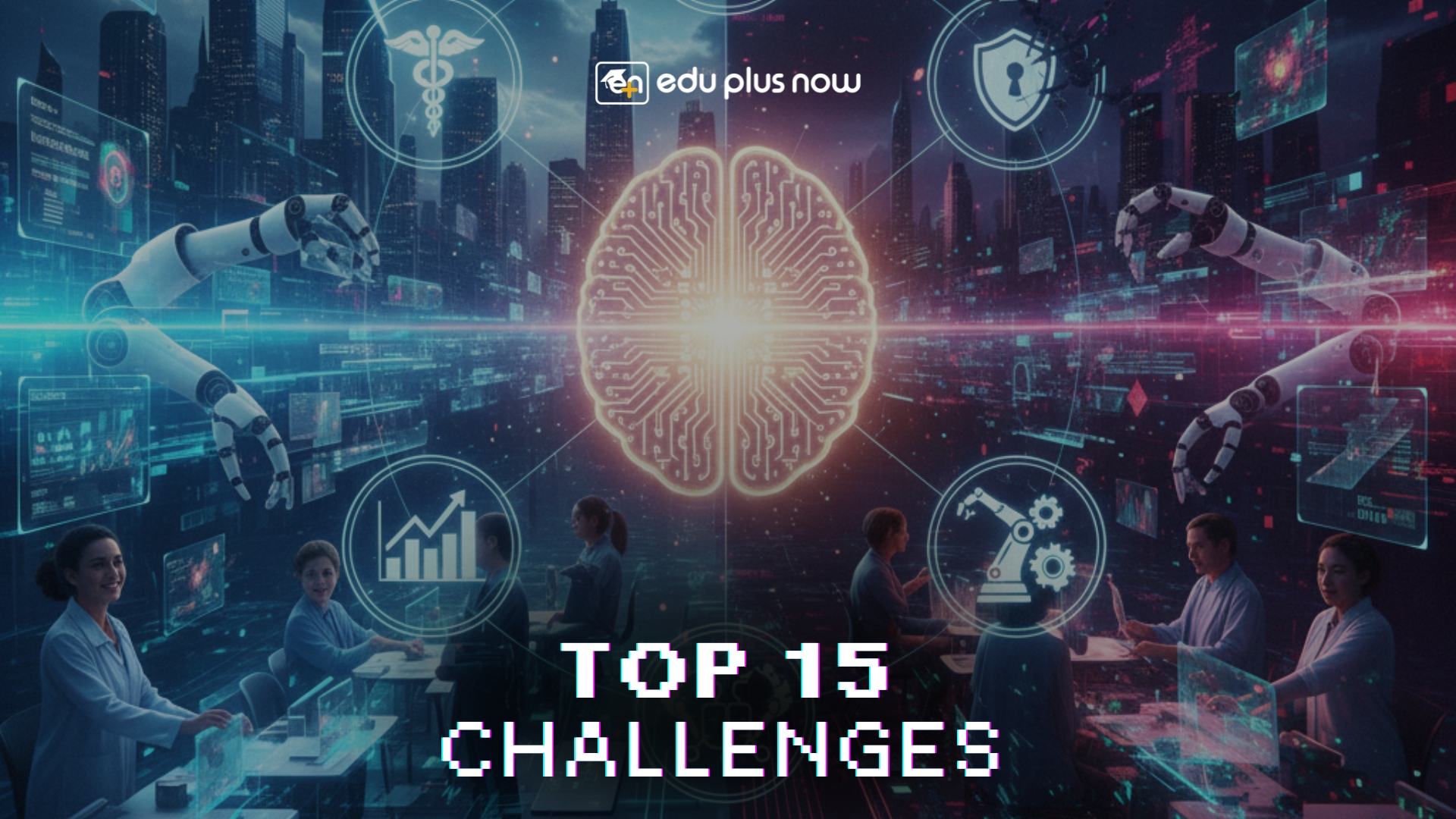Exploring AI’s biggest opportunities and toughest challenges in 2025, how it’s shaping industries, careers, and the future of humanity.
Let’s face it: AI isn’t coming- it’s already here. From smart assistants on your phone to autonomous cars and content-generating bots, Artificial Intelligence is transforming everything from how we shop to how we work. But for all its shiny, futuristic charm, AI in 2025 still has a lot to figure out. Whether you’re a tech enthusiast, a business owner, or just curious about where the world is headed, understanding AI’s trajectory- including its benefits, challenges, and how to make it work for you- is absolutely key.
So, buckle up. Let’s break it all down
A Quick Recap of AI Trends (Up Until 2025)
AI has evolved faster than your last five phones combined. Here’s a rapid timeline of key trends:
- 2010–2015: Rise of machine learning and deep learning.
- 2016–2019: AI starts beating humans in complex games like Go.
- 2020–2022: Chatbots, facial recognition, and recommendation engines go mainstream.
- 2023–2024: Generative AI (like ChatGPT, DALL·E, etc.) becomes a daily tool.
- 2025: AI is integrated in healthcare, finance, education, HR, marketing, cybersecurity, and more. But with deeper integration comes… bigger problems.
Top 5 Advantages of AI in 2025
Before we dive into the challenges, let’s quickly appreciate what AI brings to the table.
- Increased Productivity
AI tools automate tasks- think data entry, scheduling, or customer support- so humans can focus on higher-value work.
- Smarter Decision Making
AI crunches massive amounts of data in seconds, helping businesses and individuals make data-driven decisions faster and more accurately.
- Healthcare Advancements
From detecting diseases early to personalizing treatment plans, AI is transforming healthcare outcomes worldwide.
- Environmental Impact
AI helps optimize energy use, monitor climate change, and even contribute to smarter agriculture and sustainable practices.
- Career Boost & New Job Creation
While some jobs are automated, AI also creates entirely new career fields: AI ethics, prompt engineering, ML operations, AI trainers, etc.
The 15 Biggest Challenges of AI in 2025
Now for the juicy part. As powerful as AI is, it’s no silver bullet. Let’s explore the 15 key challenges we’re facing this year:
- Bias in Algorithms
AI learns from data. If the data is biased (which it often is), the output will be too. This can lead to discriminatory practices in hiring, lending, and law enforcement.
- Lack of Transparency (Black Box AI)
Many AI systems- especially deep learning models- don’t explain how they reach decisions. That’s risky for critical applications like healthcare or criminal justice.
- Data Privacy Concerns
AI eats data for breakfast. But when it comes to personal information, that appetite can quickly violate user privacy and raise serious legal concerns.
- Job Displacement
Automation is accelerating. Many repetitive jobs are being phased out, leaving workers needing to reskill or risk unemployment.
- Regulation and Compliance Gaps
Laws can’t keep up with tech. In 2025, many countries still don’t have solid AI regulations, leaving a lot of ethical gray areas.
- AI Misinformation and Deepfakes
Fake videos, voice clones, and misleading AI-generated content are on the rise. This is dangerous for politics, journalism, and public trust.
- Overdependence on AI
People are increasingly relying on AI- even when it’s not appropriate. This can lead to laziness in decision-making and critical thinking.
- Security Threats & AI-powered Hacking
AI isn’t just helping the good guys. Hackers now use AI to launch more targeted and sophisticated cyberattacks.
- Limited Access to Quality Data
Training an AI model requires loads of clean, labeled data. Most organizations simply don’t have it- or can’t afford it.
- High Cost of Implementation
Building, training, and maintaining AI systems isn’t cheap. For small businesses, that barrier is still very real.
- Ethical Dilemmas in Autonomous Systems
Self-driving cars, military drones- who’s responsible when something goes wrong? The AI? The developer? The user?
- AI in Warfare and Surveillance
The rise of autonomous weapons and surveillance tools powered by AI brings serious moral and geopolitical risks.
- Lack of Skilled Talent
There’s a global shortage of AI professionals, especially those who understand both the tech and the ethics behind it.
- Inconsistent Global Standards
Different countries have different rules about AI. This lack of consistency creates confusion for global companies and developers.
- Fear and Resistance to Adoption
Many people still don’t trust AI or understand it well. This slows down adoption and leads to poor integration in workplaces.
So, How Can You Learn and Use AI Effectively?
Good news: You don’t need to be a coding wizard to get into AI. Here’s how to get started:
Step-by-Step Roadmap:
- Start with the basics: Learn what AI, machine learning, and deep learning actually are. Explore Courses by edu plus now Here
- Pick a niche: Healthcare? Finance? Marketing? Choose a field where you want to apply AI.
- Get hands-on: Use tools like ChatGPT, Notion AI, or Midjourney to build real-world AI experience.
- Learn to prompt: Prompt engineering is a top skill in 2025- basically teaching AI to give better results.
- Stay updated: Follow AI news, ethics discussions, and research papers. Join AI communities on Reddit, X (Twitter), or Discord.
How AI Will Boost Your Career in 2025
Want to future-proof your career? AI isn’t just a threat- it’s an opportunity. Here’s how:
- AI literacy is becoming a core skill- like Excel was 10 years ago.
- Hybrid roles are popping up: think AI + marketing, AI + design, AI + law.
- New job titles: Prompt Engineer, AI Trainer, AI Ethicist, Conversational Designer.
- Freelancing + AI: Tools like Jasper, ChatGPT, and Midjourney help solo creators do the work of entire teams.
- Entrepreneurship: Start your own AI-powered product or service- even without a tech background.
Wrapping It All Up (Yep, We’re Almost Done!)
AI in 2025 is dazzling, terrifying, and everything in between. It’s revolutionizing industries and reshaping human potential- but it’s also riddled with ethical landmines, technical hurdles, and social challenges.
The key? Awareness. Action. Adaptation.
Whether you’re building AI, using it, or just learning about it, your role matters in shaping a better, more balanced AI future.
FAQs: Burning Questions About AI in 2025
Q1: Is AI going to take over all jobs?
Nope. It will replace some tasks, but it’ll also create new roles- especially for people who learn how to work with it.
Q2: Can I learn AI without coding?
Absolutely. Tons of AI tools are no-code or low-code. Focus on concepts and application, not just programming.
Q3: Is AI dangerous?
It can be if misused. That’s why ethics, regulation, and transparency are so crucial right now.
Q4: What’s the best AI tool to start with?
Start with ChatGPT, Google Gemini, or Notion AI. They’re beginner-friendly and powerful.
Q5: Will AI be smarter than humans?
In some tasks- yes. But true general intelligence is still far off (and super controversial).





